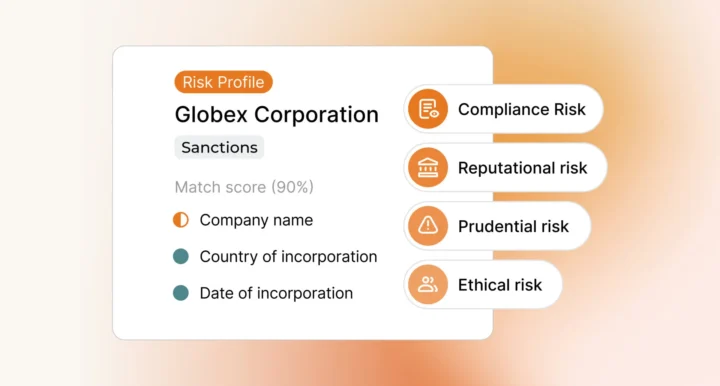Norway is a highly developed Scandinavian country and, supported by abundant natural resources, one of the wealthiest economies in the world. Norway’s prosperity also makes it a target for financial criminals, who seek to exploit its financial system to commit crimes such as fraud, money laundering, and terrorism financing. Recent financial scandals have drawn attention to Norway’s anti-money laundering (AML) and counter-financing of terrorism (CFT) regulatory requirements. In 2020, for example, DNB ASA, Norway’s largest financial services group, was fined a record-breaking NOK 400 million (around $48.1 million) for systematic AML compliance violations.
Norway’s increased focus on combatting financial crime means that businesses operating in the country must be familiar with its AML/CFT landscape, including how to work with its financial authorities, and how to implement a suitable regulatory compliance programme.
Norway’s AML Regulator: Finanstilsynet
Norway’s primary AML regulator is the Financial Supervisory Authority of Norway (FSA), also known as Finanstilsynet. Established in 1986 as a merger of the Norwegian Insurance Council, the Bank Inspection Agency, and the Broker Control Agency, Finanstilsynet functions to “promote financial stability and well-functioning markets” in Norway, by ensuring that “supervised institutions comply with the anti-money laundering legislation”.
In that capacity, Finanstilsynet supervises Norway’s banks and financial institutions, including insurance and credit companies, pension funds, accountants, and real estate agencies. Its duties include developing and implementing financial legislation in conjunction with the Norwegian government, implementing risk-based AML/CFT in Norway’s financial institutions, and conducting on-site compliance inspections. Financial institutions that wish to operate in Norway must demonstrate that they meet a set of competency criteria and then obtain a licence from Finanstilsynet.
As a signatory to the EU’s Memorandum of Understanding on Cooperation, Finanstilsynet also works with other national supervisory authorities across the European Economic Area (EEA), and with other regulatory bodies across the world, in the global fight against money laundering.
Norway AML Regulations
Norway’s main AML/CFT law is the Act Relating to Measures to Combat Money Laundering and Terrorist Financing, also known as the Anti-Money Laundering Act. Passed in 2018, the Anti-Money Laundering Act imposes risk-based record-keeping and reporting regulations on financial institutions in Norway, including the need to apply customer due diligence (CDD) and ultimate beneficial ownership (UBO) checks to new customers, and to perform ongoing monitoring of customer financial activity in order to identify suspicious behaviour.
As part of the EEA, Norway implements the EU’s anti-money laundering directives (AMLD) in its domestic AML/CFT legislation. Accordingly, Norway has updated the Anti-Money Laundering Act with the relevant regulatory detail, including measures set out in the latest AMLD, the Sixth Anti-Money Laundering Act (6AMLD), which came into effect on 3 June 2021.
Recent AML initiatives: Norway is likely to implement the EU’s landmark Markets in Crypto Assets (MiCA) regulation, which will manage the emerging risks posed by unbacked crypto-assets and stablecoins. Norway will also implement the Transfer of Funds Regulation (TFR), extending AML/CFT regulations to virtual asset service providers. Both regulations are set to come into effect in 2024.
How to Comply with AML Regulations in Norway
Following Financial Action Task Force (FATF) guidance, and AMLD requirements, Norway imposes risk-based AML/CFT regulations on its financial institutions. This means that they must conduct risk assessments in order to establish customer risk profiles, and then deploy a proportionate compliance response, depending on the level of risk. With that in mind, Norway AML compliance solutions should include:
- Customer due diligence: In order to build accurate risk profiles, firms in Norway must establish the identities of their customers by applying effective customer due diligence. In addition to collecting names, addresses, birthdates, and other identifying information, firms should seek to establish the ultimate beneficial ownership of corporate customers.
- Transaction screening: Firms should screen customer transactions for signs of money laundering, including transactions with high risk counterparties or transactions that involve high risk jurisdictions.
- Sanctions and watchlists: Sanctions targets and politically exposed persons (PEPs) represent a high level of AML risk. Accordingly, firms in Norway must screen their customers against the relevant sanctions and watchlists during onboarding and throughout the relationship.
Adverse media: News stories and other forms of media are particularly effective at revealing criminal risk. Stories about sanctions designations, criminal investigations, or professional connections, for example, may be broken online, by news organisations or other entities long before they are confirmed by government or law enforcement sources. Accordingly, adverse media represents a valuable AML resource, and one of the most effective ways to inform risk-based compliance decisions about individual customers.
In practice, firms should screen their customers against adverse media sources on an ongoing basis. Adverse media screening should have a global scope, and take in as broad a range of sources as possible, including established news outlets, websites, blogs, forums, and social media posts. Effective adverse media screening requires firms to integrate software with multi-language search capabilities that is capable of searching in real time in order to deliver the most recent risk data.
Next Generation Screening Technology
Norway’s AML regulations are evolving to match the demands of the global risk landscape. To stay ahead of your compliance obligations in Norway and beyond, it’s critical that you implement a screening solution capable of capturing a vast amount of risk data, while minimising false positive alerts.
Ripjar’s Labyrinth Screening platform has been designed to meet AML compliance challenges in jurisdictions around the world, and ensure your firm stays ahead of both regulatory changes and criminal threats. Powered by next generation machine learning technology, Labyrinth enables real-time searches of thousands of global media sources, including news articles, and sanctions and watchlists, in over 20 languages. Labyrinth focuses on extracting the most relevant risk data, helping you build accurate, effective risk profiles in seconds and identify new risks as soon as they emerge.
Contact us to discuss how Ripjar can support your AML compliance in Norway
Last updated: 31 January 2025





